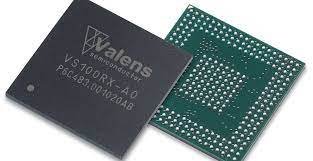
Israel AV Mobility Newsletter | Apr. 2021
Despite the situation during the last weeks under fire, Israeli startups kept innovating! Thanks for all my friends here who showed their concern during those days, and please feel free to PM me if you are interested to learn more about the conflict.
Last month we saw two autonomous robots start pilot, Yandex testing cute delivery robots to compete with Wolt bicycle riders, while ELTA deploy a combat vehicle which you will defiantly wish to never encounter. In addition, despite recent volatility in stock markets, the SPAC mania continues, this month with Cognata and Vales, wishing both success.
Apr. 4th: Mobility solutions provider Via (ויה) and Sheba Medical Center (ביה״ח שיבא תל-השומר) collaborate to launch Sheba’s new digital internal transportation service “Sheba-BUS”. Using Via’s transport technology, the service will become flexible, on-demand, using a dedicated application that can be operated from any mobile device. The app allows Sheba Medical Center visitors, patients and employees, to receive real-time information about the Sheba-BUS route and book rides as needed. In the future it will be possible to order transportation from the station without the need for a smartphone, using a special screen that will be installed there.

Apr. 5th: As announced at December 2020, Innoviz Technologies (אינווויז) and Collective Growth Corporation(קולקטיב גרוט׳ קורפוריישן) has completed their merger. The combined company will preserve the Innoviz Technologies Inc. name, and its ordinary shares and warrants are trading on Nasdaq under the ticker symbols “INVZ” and “INVZW”. The merger will provide Innoviz with approximately $371 million in gross proceeds comprised of Collective Growth’s cash in trust and a PIPE led by strategic investors. It will allow Innoviz to meet the growing demand of LiDAR in the automotive sector.
Apr. 5th: GPS security company infiniDome Ltd. (אינפינידום בע”מ) , closed a $2.4m pre-series A funding round. The round was led by Next Gear Ventures, with participation of Honeywell Ventures. The company intends to use the capital to scale customer engagements in the Commercial Aircraft, UAS/UAV, and UAM market segments. infiniDome is a GPS security company that provides front-end cyber solutions protecting wireless communications from jamming attacks. It defends the GPS systems which are at the heart of drones, various unmanned systems, vehicle fleets and defense applications.

Apr. 5th: Provider of autonomous system simulation software, Cognata(קוגנטה) is considering an initial public offering on TASE. The start-up, which develops simulation for training autonomous cars and driving assistance systems (ADAS), is interested in raising up to 350 million NIS at a value of NIS 1.1-1.5 billion (USD 330M-450M).

Apr. 9th: The City of Eilat (אילת) will implement Viisights‘ (ויסייטס) real-time video analysis intelligence systems to detect abnormal behaviors through the city’s street cameras. The AI system provides an advanced understanding of the content streamed from the video channels, locates and alerts in real time to the City Command and Control Center, and is mainly designed for smart cities, smart businesses, intelligent infrastructure and public safety applications. Eilat is the first city in Israel to use such technology.

Apr. 12th: Israel-based automotive chip company Valens Semiconductor Ltd. (ואלנס) is in advanced negotiations to go public via a SPAC merger. The merged company is set to be valued at between USD 1 – 1.2 billion. Valens has hired the services of Bank of America to lead the merger, which began three months ago. Valens was founded in 2006, it manufactures semiconductor products for uncompressed HD multimedia content in various sectors including automotive, industrial and consumer electronics. So far, Valens has raised USD167 million from investors, including Goldman Sachs, Samsung, and Oppenheimer Asset Management.


Apr. 12th: Mobileye (מובילאיי) teams up with California-based Udelv to launch self-driving delivery vehicles. Mobileye will supply its self-driving systems to 35,000 purpose-built autonomous delivery vehicles, targeted to hit the city streets by 2028. Despite the long futuristic target almost a decade away, limited commercial operations will begin in 2023. Mobileye will provide over-the-air (OTA) software updates and support throughout the lifetime of the vehicles. These L4 autonomous vehicles will be equipped with four-directional four-way steering (similar to ZooX design), LED screens to interact with people picking up their delivery and special compartments for goods.

Apr. 13th: REE Automotive (אוטומוטיב REE) partners with Canadian mobility technology company Magna (Magna International Inc.) to build Modular Electric Vehicles (MEV). The two will combine REEcornerTM technology with Magna’s vehicle systems integration expertise and manufacturing capabilities, to develop MEVs that enable commercial customers to customize vehicles based on their specifications and branding. REE and Magna will also explore potential collaboration as mobility providers through the creation of a Mobility-as-a-Service (MaaS) venture in the Light Commercial Vehicle sector.
Apr. 17th: Elbit Systems (אלביט מערכות)and Israel Aerospace Industries subsidiary, ELTA Systems (אלתא מערכות בע״מ), has developed an operational autonomous vehicle for IDF use, named “Jaguar”. The vehicle is being assimilated at the Gaza division, which is expected to be one of the first to enable remote controlled identification and destruction of threats.


Apr. 18th: Geely’s new electric vehicle lands in Israel for Mobileye trials. only one week after the Chinese automaker officially unveiled its new premium brand Zeekr electric vehicle, cars can already be seen on Israel’s roads as part of Geely’s strategic cooperation with Mobileye. As part of the collaboration, Mobileye will develop and provide Geely with an advanced autonomous driving package including sensors, chips and algorithms. Mobileye’s systems will be installed in several of Geely’s electric vehicle models. Zeekr twin-engines 536 ccs and a 100 kilowatt hour battery, provide a range of 712 kilometers in its regular model and 606 kilometers for its New European Driving Cycle (NEDC) emissions model. The Zeekr model can be fast charged at 360 kilowatt stations, adding 120km range in just five minutes.

Apr. 19th: Arbe Robotics‘ (ארבה רובוטיקס) 4D Imaging Radar Platform for L4 Autonomous Vehicles was selected by Chinese VDS developer AutoX. Over the next five years, AutoX plans to integrate 400,000 of Arbe Rradar systems into their L4 RoboTaxi fleet. Arbe is expected to start trading on Nasdaq soon after merging with an American SPAC, as announced on March.

Apr. 19th: Developer of modular platforms for EV REE Automotive (אוטומוטיב REE) and French company, Navya partner to develop a Level 4 autonomous driving system.. Navya, which develop autonomous driving systems and specializes in autonomous shuttles, plans to use REE platform not only for shuttlebus, but also in driverless delivery vehicles. Navya, has sold more than 180 shuttle units in 23 countries, two of them in Israel.

Apr. 19th: Gett Inc. partners with taxi and e-fleet operator Curb Mobility, to expand its services in the US. Gett will integrate yellow taxis into its app, that will now cover 65 cities across the US. The deal comes after Gett was looking to expand its service andgenerate demand, as riders are currently at 80% of the level they were in Q12020. Curb Mobility, Formerly Verifone Taxi Systems, offers taxi technology and creative out-of-home media solutions.

Apr. 20th: Israeli company Autotalks (אוטוטוקס), which specializes in V2X communications solutions, is collaborating with Russian Sreda Solutions to offer a V2X solution that will prevent accidents on Russian roads. The project, known as NTI AutoNet, has been appointed by the Russian government and is at the forefront of efforts to bring V2X technology to the local automotive market starting in 2024. Just a month ago, Autotalks joined the SECUR project to improve safety for road users with leading OEMs and Tier1s.
Apr. 21st: Foresight’s wholly owned subsidiary, Eye-Net Mobile Ltd.(איי-נט מובייל) , signed a distribution agreement with Brazilian distributor, WebSIA (WebSIA Soluções Disruptivas, Inteligências Associadas, Tecnologia e Serviços Ltda.). According to the agreement, WebSIA will exclusively promote and sell the Eye-Net’s Protect cellular-based accident prevention solution and serve as Eye-Net’s distributor in the city of Sao Paulo to support customers and generate new business. Following successful integration of Eye-Net’s solutions in Sao Paulo, the parties may expand the agreement to additional territories.

Apr. 21st: Orca AI (אורקה), a computer vision startup that can be retrofitted to cargo ships and improve navigation and collision avoidance, has raised $13 million in a Series A funding round. The round was led by OCV Partners, with principal Zohar Loshitzer joining Orca AI’s board, and with participation of Mizmaa Ventures and Playfair Capital. Orca’s computer vision solution will introduce autonomous guidance to vessels already at sea when most cargo ships use security cameras. Orca AI’s AI-based navigation and vessel tracking system supports ships to navigate situations and congested waterways, using vision sensors, thermal and low-light cameras, plus algorithms that look at the environment and alert crews to dangerous situations. Orca AI founded in 2018, has raised till this day over $15.5 million.

Apr. 23rd: Hyundai Motor Group invests in Israeli start-up Ottopia (אוטופיה),as part of a $9 million round. Also participated in this round are; Maven Ventures and IN Venture – the Israel-focused venture capital arm of Sumitomo Corporation, as well as exiting investors; MizMaa Ventures and NextGear Ventures. Hyundai and IN Venture also gained board seats. Ottopia’s system allows a human operator to take command of autonomous tools remotely – no matter what country or continent they are in. To date, Ottopia has raised a total of $12 million, and a larger round is considered next, to help fund the company’s growth.

Apr. 27th: REE Automotive signs a strategic agreement with Toyota’s subsidiary Hino Motors Co., Ltd. The two companies will develop a modular platform that will carry a customized Mobility Service Module on top. The companies will first work to develop hardware prototypes by FY 2022, while evaluating business models, engaging potential customers and conducting demonstrations.

Apr. 28th: Powertrain EV maker IRP Systems has raised $31 million in a Series C funding round. The round was led by Israeli institutional investors Clal Insurance and Altshuler Shaham. Other participants in the round were Samsung Ventures, Renault-Nissan importer Carasso Motors and Shlomo Group, as well as existing investors Entrée Capital, Fosun RZ Capital and JAL Ventures. IRP will use the new capital to scale the development of its systems for EVs, expand R&D, operations and customer support. IRP Systems specializes in high-performance electric powertrain systems for a variety of e-mobility platforms. Till date, IRP has raised $57 million since its establishment in 2011.
Apr. 29th: Yandex Rover, Yandex’s autonomous delivery robot was spotted rolling in the streets of Tel Aviv. The robot traveled from nearby Deli By Yango logistic center, located in Yigal Alon Street. The robot was remotely monitored by an experiment engineer and appeared to manage crossing the road on a crosswalk and it did not disturb pedestrians on the sidewalk. The Robot is equipped with 6 wheels (3 on each side), a LiDAR sensor on top, peripheral camerasThe Deli By Yango service, was launched in November of last year, promise to deliver different products to your home in just 15 minutes from small logistics centers around the city .
Sources: New-Tech Magazine Online, CISION PR Newswire, FINSMES, The Marker, YomYom Eilat, Calcalist, Tech Crunch, CTech, Ynet, Globes, , REE Automotive News, CTech, Chiportal, TechTime, Business Wire, , Automotive World, Geektime.



